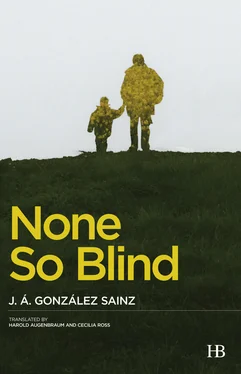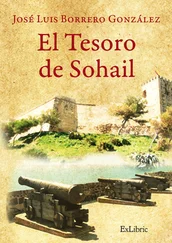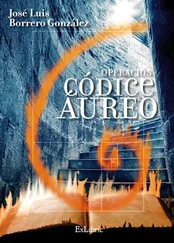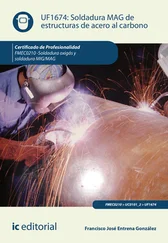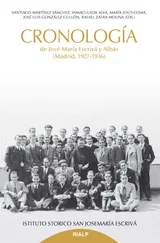Didn’t you come here to talk? — he couldn’t help hearing the words echo in his head as he huffed his way upward — so talk, goddammit, say something, you pitiful nonentity, you have no place in this world and you’ll never have any fucking place in it your whole goddamn life!
Now he was going to have a talk with him, he was thinking, now he was going to have a talk with him, just the two of them, or maybe with her, too, or who knows who else; but even then he was only going to talk to them in his own way, wordlessly, silent like raindrops before a storm, those giant, fat raindrops that pound into the dust, but with facts — or would they just be names again? — with the facts that always, each time you recall them or speak them aloud, albeit softly, sound the same and mean the same thing, limitless in their simplicity.
22
Among the talk going around the village about that dawn a few days after the beginning of the war when his father and his four other unlucky companions in misfortune were thrown from the top of that cliff, the news spread that one of them, a boy of barely twenty, had started to shout and cry so despairingly that you could hear him all the way over in the village, and that they’d amused themselves by shooting, there at the very edge of the cliff itself, at the feet of another of them — anarchist scum, they continued to call him to the last — who had surprisingly, according to the word on the street, fallen to praying. All right, one of them must have said sarcastically, let’s see if you can finally make a nice, straight line now on your way down. But there didn’t seem to be much of a consensus, as far as he had heard, regarding his father.
Some said he was praying to himself the entire time as they went along the road; others said that at one point during the ascent, aided by the low light, he had somehow managed to loose the bonds on his wrists and had tried to grab one of the squadron member’s pistols. But the only thing they all agreed on was that Felipe Díaz, Felipe Díaz Díaz, said nothing at all in the end; all he did was to look at them, to look at each one of them with an expression of desolate sadness, and then he looked from that tall perch at all the space stretching out in every direction, and with all of that in his eyes — dawn was just beginning to break, according to what everyone had always said — they must have simply tossed him off the cliff.
He recalled this, and he then he stopped looking at the cross he had been looking at, so small down there below him, and instead he, too, slowly raised his eyes up from the edge of the crag and out onto his immense surroundings. He was still gulping in air from his climb, and his legs, numbed, or you might also say petrified, just like that mound of stone, were shaking. But after few moments, unexpectedly, as soon as he took in the vastness whose view his vantage point allowed him to command, he felt instantly secure, strangely secure, as if he were resting upon or being held up by all that immensity more than by the narrow strip of rock on which he was standing.
It was fair to say that apart from the passengers who had left their cars parked on the other side of the river in the places where the highway opened out and had stepped outside with their binoculars to admire the elegant flights of the Egyptian vultures, even during one of the months when the birds had emigrated to their winter quarters, there wasn’t another soul around. Perhaps, with nothing else to see, they were now watching him; in fact, he was practically sure of it, judging by the way two of those tiny little dots were motioning wildly. But he looked away from them, from the ridiculous vanity of their movements and their concern for him (didn’t they, too, have a part in all this, the question crossed his mind for an instant), and he raised his eyes as if trying to understand the whole thing for a moment, once and for all.
Beyond the bend in the river and the green and yellow plain of the fields, beyond the roadway that ran parallel to the river, there was a smooth expanse of hillocks and mounds, of arable land at times and other times of lands peppered by dark splotches of oak trees where the silvery coil of another road wound its way. Sometimes the land was red, a red that was on occasion claret or crimson, and on other occasions it was like freshly spilt blood, a vibrant cinnabar color in stretches, or ferrous hematite, and other times, in the fallow or stubble fields left uncultivated, it was yellow, or rather greenish, low, open scrubland. Beyond the first hillocks, as they gained height, a few ridges were covered with sessile and Pyrenean oaks that had begun to turn yellow and lose their leaves, and along the riverbeds, the leaves of the poplars, raising their lances on high with all the golden splendor of autumn, provided a counterpoint that, in its transitory finiteness, suddenly seemed eternal to him. Far off, in the distance, and it would have been hard to say whether closing it all off or making everything stand out all the more by delimiting it, the great mountains of the cordillera showed off their sharp, blue profiles in the clear, clean light of morning.
He didn’t know if he had ever seen such beauty in his entire life, he surprised himself suddenly thinking, or if perhaps that , what there is before disappearing, is what true beauty is in the end, what one has had in his sights and has not seen, now that one has it but cannot go on having it, and if, as a result, it might always have been thus, in the face of every moment that is, by its very nature, about to disappear, or if it was only now.
Nor did he know if all of that beauty was in fact there, in space, or at that moment and, therefore, in time, or even if it was truly out there rather than inside him, or perhaps neither without him nor within him but in the attention he paid, which is what enriched things or impoverished them, what broadened and stretched them or narrowed them and made them rigid and numb like his legs just then, or even what helped create them or crush them. The only thing he knew was that he was there right then, at the edge of everything and right before nothing, and in that everything and that nothing that that moment was, still, for him.
But what kind of thoughts are these, he asked himself, what am I doing thinking such things right now? But suddenly it occurred to him, too, that he had gone up there at the exact moment when it had never been more difficult for him to take a single step, when he could move little better than a lame, broken man in his last days, afflicted by some unknown paralysis. I had to wait until the end, when I could barely walk, to come up and see what could be seen from up here, he told himself again. Does that mean something? Do things speak to us, or is it just our need to implore them to say something to us?
He had barely completed these thoughts when he looked down again, over the precipice, still keeping his vertigo in check, and he saw his road there still, next to the river, the dirt road of his father, may he rest in peace, and his grandfather, and his own, too, the road that seemed to mark a boundary between the fertility of the earth and the rocky, steep flanks of the mountain, between the sere and the lush, that white, perfectly defined path, delicate more than narrow, just a tiny little thread from up there, one he could navigate even in his sleep and still tell you precisely where he was or was not at any given moment, one you could only travel on foot and, most likely, in silence, but whose breath — for a moment he was sure that just beyond a bend, the road continued along past a metalworks and then a tire retread shop before passing a great, windowless hangar, a gas station, then an automobile dealership, and an interchange — seemed to waft curiously all the way up to where he was, in the least dispersed and the most inexhaustible, sure way in the world.
Читать дальше
